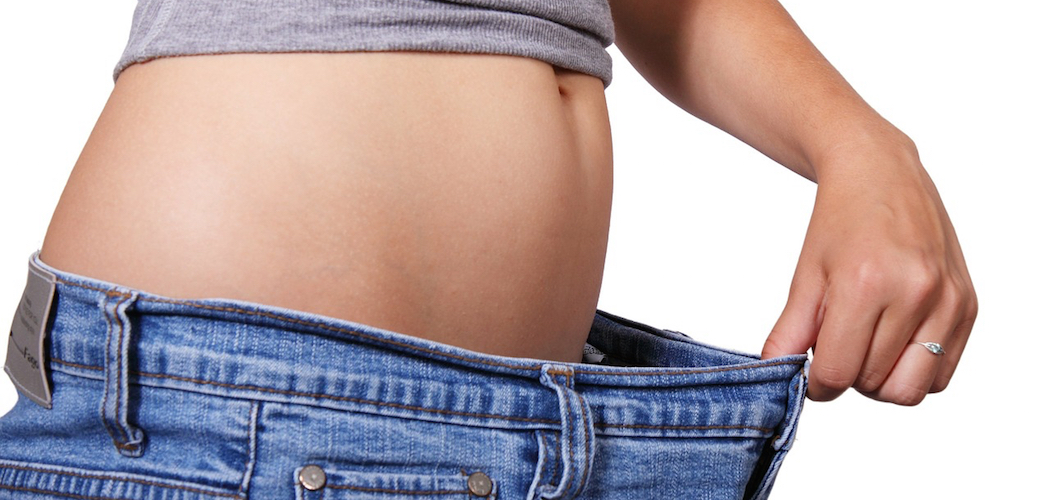Dr Sara Gottfried knows weight loss. She successfully overcome her own battles and transformed herself from “fat and frazzled” to fit and healthy several years ago. These days, she helps women everyday to unlock the healthiest — not to mention slimmest — versions of themselves by correcting hormonal imbalances. Here she shares and answers her three most common weight loss questions.
For most women, there’s no topic hotter than weight loss. But personally I believe the search of a perfect swimsuit body is also representative of something bigger: we’re more concerned than ever about being healthy, fit, and energized.
I’m asked a lot of questions on the topic, but here are the top three – I’m guessing they’ve probably crossed your mind, too.
1. Is weight gain inevitable for aging women?
The short answer? No.
That’s not to say your body won’t change, droop and sag in certain ways as gravity takes its toll – or that your metabolism might not slow down a bit – but putting on pounds as you get older isn’t something you have to just accept as “normal.”
For many women, weight gain is the result of hormonal imbalances at work that are interfering with your body’s ability to burn fat efficiently. Combine that with other common conditions that plague the typical aging population – high blood pressure, diabetes, cardiovascular issues – and you’ve got a recipe for extra pudge.
The main message I try to get across to my patients is that, while you can’t expect to have the body you did at 25 when you’re 55, staying fit and at a healthy weight for your age is possible – if you know what’s going on hormonally and adopt lifestyle habits that support total body health, that is. I write about this issue extensively in my latest New York Times bestselling book, The Hormone Reset Diet. The truth is that about 99 percent of weight gain is hormonal, and hormonal balance is an option regardless of your age.
2. Vegan, Paleo, Mediterranean – which diet really works for weight loss?
Is there any area more divided among health professionals than diet?
Despite what you may be doing in other areas of your life, how you eat is paramount when it comes to the battle of the bulge. If you follow my work, you know that I’m a big advocate of the paleo-based diet, but I also talk frequently about eating your veggies and the importance of plant-based nutrients.
When it comes down to it, there isn’t a one-size-fits-all approach for a weight loss diet. True, if you increase your protein intake, cut out grains and eliminate things like processed foods and sugar, you’re probably going to shed some pounds. But depending on your body’s unique physiology, you might benefit from eating more carbs than the person sitting next to you, or perhaps others can get away with eating more fat than would be beneficial for you.
I generally advise a few groundwork rules, however:
- Cut the gluten
- Minimize dairy
- Opt for lean proteins
- Up vegetable intake
- Stick with low-sugar fruits, and
- Reduce processed carbs and sugar as much as possible.
Oh, and scale back your alcohol and caffeine intake, too.
A vegan, for example, could still follow this protocol – provided he or she was eating good sources of protein, getting calcium from nondairy sources and not overdoing it on grains.
If you feel like you’re honestly eating clean and not losing the weight, a greater hormonal imbalance might be at play. That’s when it’s time to see your doctor.
3. How do I know if it’s my hormones causing weight gain?
You won’t really know if your hormones are to blame until you get some basic blood work done. Record your symptoms and check in with your physician. See what your medical professionals recommend, but also be prepared to request tests on your own.
You might want to start with the following panel of tests:
- TSH (Thyroid Stimulating Hormone), free T3, free T4, reverse T3
- Insulin, leptin, glucose
- Hemoglobin A1C
- Free and total testosterone, DHEAS
- Estradiol, progesterone
- Cortisol
- IGF-1 (growth hormone)
- “VAP” Lipid panel*
It will probably require time and patience, but you can get to the bottom of stubborn weight gain when it stems from a hormonal issue. The liberating part, too, is that uncovering the root problem might shed light on other symptoms that have been causing you chronic pain or stress.
Reset those hormones, eat clean, minimize stress, and you’ll start seeing your body naturally return to a healthy weight and shape.
[*Editor’s note: please read our health disclaimer here.]
Image credit: Eric v Flickr
Read more on Dr Sara Gottfried’s website. You can also download Dr Sara’s free guide, “5 Proven Potions for Weight Loss” by clicking on the link in this post.
